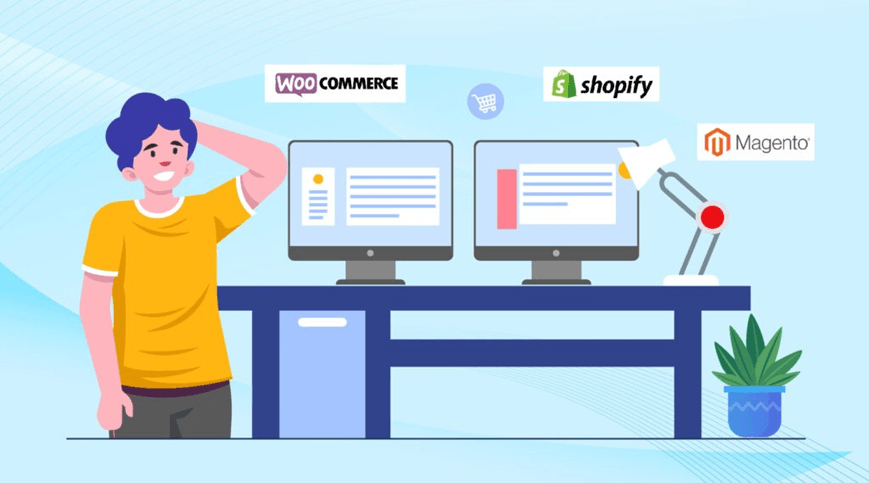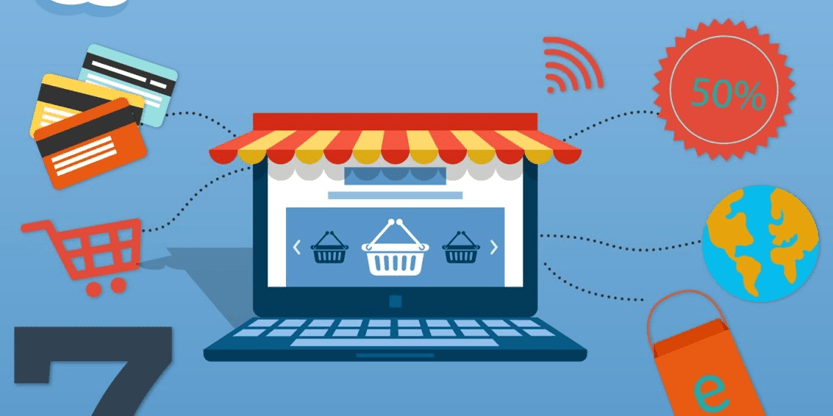10 Things to Keep in Mind Before Starting an eCommerce Business
Introduction
Contained therein are some key lessons that one has to master when developing an online store from a niche selection to a mastery of digital marketing principles. In this blog post, I outline ten essential factors that one must be aware of before venturing into the eCommerce sector so that you can build a stable and successful enterprise.
Learn more about
Top Benefits of Custom CMS Development Services for Your Business
1. Choose the Right Niche
Why it matters:
How to do it:

2. Learn About Your Customers
Key questions to ask:
- What is your target customer, their age, their gender, and what kind of job do they do?
- What problems are organizations currently experiencing, and can your products address them?
- Which of these shopping and socialising platforms do they use?
Key questions to ask:
- Survey competitor’s audiences with social media listening and similar tools.
- Use questionnaires, tele interviews, or well-structured discussion groups to elicit first-hand views.
- Crucial characteristics that meet primary trends in the sector.
- Most ideas that may help your specific software application to shine.
3. To find the best-selling platform, it is important to:
Factors to consider:
Ease of Use: Another question to ask is; Can the beginners use the platform?
Customization Options: Do you consider that it can be altered to meet your brand’s design?
Scalability: Will it hold your business as it gradually expands?
Cost: Subscription fees and any other transaction charges must be properly revalued.
Pro Tip: If you’re new to selling online, begin with the easy-to-use interface of Shopify and only then move to the capabilities of Magento.
4. Build a User-Friendly Website
Factors to consider:
- Speed: Make sure that the site itself takes 3 seconds or less to load.
- Mobile Optimization: Mobile commerce represents more than 50% of all Internet sales.
Easy Navigation: Design comprehensible navigation and search mechanisms so that customers can find what they are looking for with no difficulty.
Pro Tip: Customer reviews, a clear product description, and images should be incorporated to help you gain customers’ trust and encourage a purchase.
5. Specialize in SEO and Digital Marketing
Marketing strategies to prioritize:
SEO: It should focus on product descriptions, blogs, and meta tags, which can easily be conducted by using keyword research tools.
ocial Media: This could be in the form of usually timed mini campaigns on Instagram, TikTok, and Facebook just to name a few.
- Content Marketing: Show your viewers how to create blogs, videos or guides that will capture their attention and bring free traffic.
Third-Party Integration: Including payment gateways, tax calculators, or notifications through emails.

Pro Tip: Marketing: Use analytical tools in your marketing process by using Google Analytics or SEMrush to track the success.
6. Establish a Positive Corporate Image
Branding components to focus on:
Logo and Visuals: Design a good logo and stick to it while using the same color and font for all branding.
Voice: Create the right style/mood of communication for your clients (formal, informal, business-like, etc).
Storytelling: Teach customers about your brand and make them care about it.

Pro Tip: Social proof can be used to enhance the perception of your brand, so, use customer reviews and user-generated content much.
7. Safe Exchange and Delivery Alternatives
The biggest factors that concern customers and influence their behavior while shopping are security and convenience. Provide options to pay such as credit card, connect third-party payment options as wallets and PayPal to accept various choices.
Shipping best practices:
- Offer a variety of services like normal, 2-day, and international delivery.
- High shipping cost discourages customers from completing their purchases, so, ensure that shipping cost and delivery time is displayed clearly.
8. Know the Law and Tax Compliance
The legal and tax requirements must be followed to avoid any legal suit and to gain customer trust.
Key requirements:
Incorporate your business and get the necessary permits.
Obey laws concerning collection of tax, sales tax and Value Added Tax.
It is suggested to draft clear policies for returned merchandise, refund and privacy within the company.
9. Manage Finances Effectively
Financial considerations:
Determine the cost level concerning the creation of a web page, acquisition of inventory, and advertising.
Introduce flexible pricing policies that both increase the company’s share in the market and ensure increased profit margins.
All expenses along with the movement of money should also be recorded with the help of bookkeeping applications like QuickBooks, Xero, and more.
Pro Tip: Mass market advertising, product development, and expansion as a way to allocate profits to strengthen the development.
10. Expect Change and Trouble
Common challenges:
Product handling, stock control, and delivery.
Measure changes based on customer feedback as well as other changes in the market.
Opportunities Expansion of services in order to cater for the increasing market.
Conclusion
Learn more about
“How to Start and Promote A Successful E-Commerce Business by 2024”



